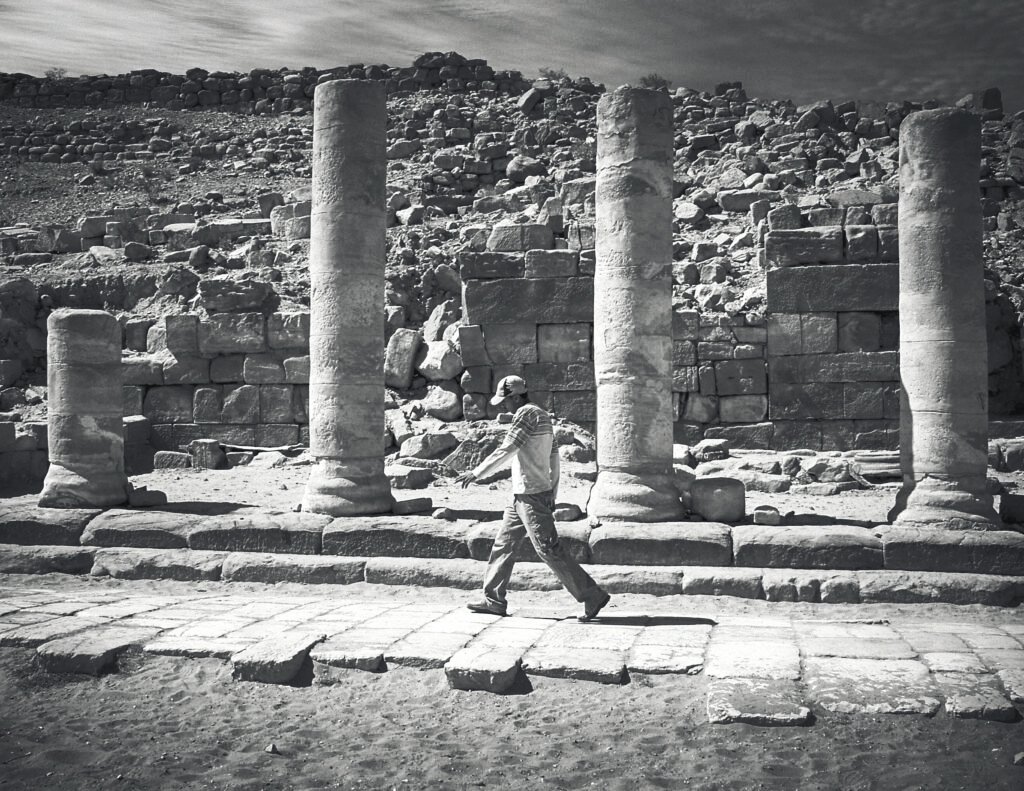
In the shadow of Petra’s rose-red cliffs, where the wind whispers in Nabataean tongues and time clings to sandstone like a faded memory, a young man walks—slow, quiet, between the ancient stone columns that line the forgotten way.
His name is Rami, twenty-five, eyes the color of burnt honey, feet caked with dust from the Siq, head covered by a dusty ballcap, providing some respite from the sun. He is not a tourist. Nor quite a guide.
He is from nearby Wadi Musa, but walks Petra like a son returns to his ancestors—with reverence, with questions.
The colonnaded street stretches before him, once a grand boulevard for traders, kings, and caravans.
Now, broken and half-buried, it receives his steps like a secret kept too long. He walks between the pillars, runs his fingers along the grooves, feels the heat of centuries baked into the stone.
The columns speak if you’re still long enough. Not in words, but in wind, in shadows, in the way silence fills a space that once held voices, markets, prayers, footsteps. And for a moment—beneath sandstone gods and forgotten grandeur—he is not a young man. He is part of the ruins. Part of the breath. Part of the long, slow memory of Petra.